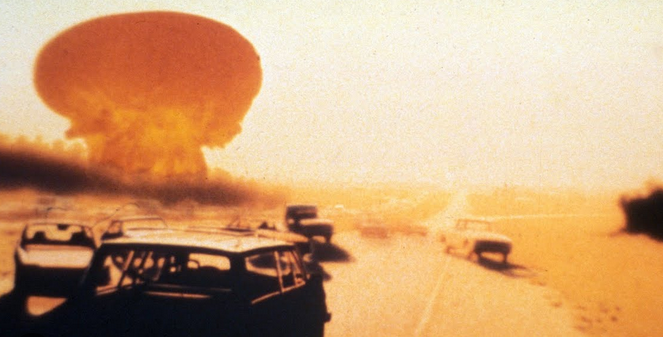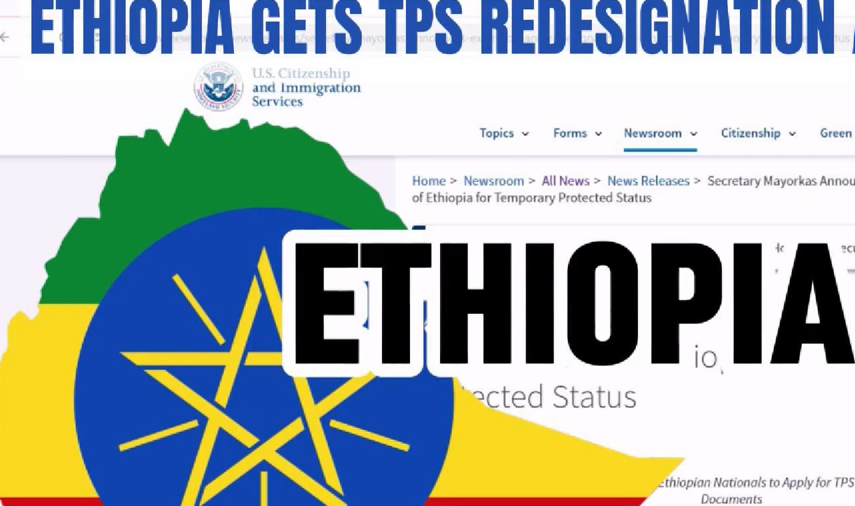“Africa – The Next Generation†depicts the resilience of Africa’s youth in the face of adversities—personal and global, large and small. From the simple act of writing a letter to Santa Claus to bravely facing life with AIDS.
[African Film Festival]
The Film Society of Lincoln Center (FSLC) and African Film Festival, Inc. (AFF) will present the 18th New York African Film Festival (NYAFF) in celebration of the United Nations International Year of Peoples of African Descent, which serves as the festival’s guiding theme.
This year’s NYAFF will also commemorate the 50th anniversary of independence in both Sierra Leone and Tanzania, countries from which much of the African Diaspora draws its roots. The festival, which will include 15 features and 16 short films by emerging and veteran filmmakers from 24 countries, will commence with a screening of rare archival footage from the Russian State Archives of both Sierra Leone and Tanzania’s 1961 liberation from the United Kingdom.
The NYAFF will include classic and contemporary films, as well as presentations by visual and performing artists paying tribute to historic moments and luminary figures who have been influential in the arts and culture of the Diaspora. The NYAFF will run from April 6 through 12 at The Film Society of Lincoln Center, and throughout April and May at the Museum of Arts and Design, Columbia University’s Institute of African Studies, The Big Screen Project, and the Brooklyn Academy of Music’s BAMcinématek.
“This year’s program will offer both a great deal of variety for moviegoers and a great deal of optimism for Africa,” said African Film Festival, Inc. Executive Director and Founder Mahen Bonetti. “From family-oriented films to dark dramas to informative shorts and documentaries, attendees will be immersed in the rich lives of people from across the Diaspora, as filmmakers show their view of Africa—one of pride, determination and hope for the future.” Film Society of Lincoln Center Program Director Richard Peña agreed, saying, “There is much to be excited about in this year’s program. This year’s selections deliver a vibrant and dynamic group of films from a number of very talented filmmakers who have done a wonderful job of introducing us to a fascinating and sometimes very unexpected view of Africa through the camera’s lens.”
Opening Night features Kinshasa Symphony, the story of Democratic Republic of the Congo’s only symphony orchestra. Directed by Claus Wischmann and Martin Baer, the film follows the determined members of L’Orchestre Symphonique Kimbanguiste (The Kinshasa Symphony Orchestra) as they overcome coups, chaos and war to celebrate life through the power of music—even creating their own instruments.
Armand Diangienda, founder and conductor of the orchestra, will be in attendance to introduce the film. On Friday, April 8, Viva Riva, Djo Tunda Wa Munga’s fictional feature about the seductive, vibrant, and lawless underbelly of Kinshasa, will be screened as the festival’s Centerpiece film. Both films, together with director Daniel Cattier’s Kongo – Grand Illusions, examine the Heart of Africa, which the Democratic Republic of the Congo, situated in the center of the African continent, has long been considered. At the crossroads of Northern, Southern, Eastern, and Western Africa, its cultures seem to pulse in time with the heart of the continent.
Additional festival highlights include the following themes and films:
“The Camera – a Filmmaker’s Weapon” featuring those who use the camera to shine light on issues of critical importance to people from across the African Diaspora. Films in this category include One Way, a Tuareg Journey, a child who documents his family’s transition from being nomads of the Sahara to urban Italian residents directed by Fabio Caramaschi and Stolen, unwitting outsiders whose cameras lead them toward a terrible secret about modern-day slavery by directors Violeta Ayala & Daniel Fallshaw.
“Africa – The Next Generation” depicts the resilience of Africa’s youth in the face of adversities—personal and global, large and small. From the simple act of writing a letter to Santa Claus to bravely facing life with AIDS. These films include: Soul Boy, directed by Hawa Essuman; Africa United, directed by Debs Gardner-Paterson; Ousmane (Deweneti), directed by Dyana Gaye; and Thembi, directed by Jo Menell.
The NYAFF will also include the short Bongo Barbershop by legendary filmmaker Charlie Ahern—whose groundbreaking 1983 film Wild Style was the first to capture the nascent phenomenon known as hip hop—and the 2011 Focus Features Africa First Shorts Program. Africa First is a program to support the growth of groundbreaking emerging African filmmakers, now in its third year.
The NYAFF begins with a nod to the dynamic artistic voices of the Diaspora at a special presentation at the Museum of Arts and Design (MAD) on Saturday, April 2. The 3:00 pm event will feature a dynamic panel of international artists, including entertainer and humanitarian Harry Belafonte, textile artist and writer Xenobia Bailey and filmmaker and curator Zina Saro-Wiwa. The panel will be followed by a screening of the 1996 film African Rhythmus, which is about the First World Festival of Negro Arts (now known as the World Festival of Black Arts); African Rhythmus is a visually stunning fifty-minute Soviet survey of the first large-scale exhibition of arts from throughout the Diaspora.
The festival moves to The Film Society of Lincoln Center’s Walter Reade Theater at 165 W. 65th Street, Plaza Level, running from April 6 through 12, then travels to Columbia University on Thursday, April 14 for a daylong free public program in partnership with Columbia University’s Institute of African Studies. On May 20, a co-presentation with The Big Screen Project will bring Africa and the Diaspora into the public sphere through the presentation of short and feature-length films on a giant outdoor LED screen located on Sixth Avenue, between 29th and 30th Street. The festival concludes, as always, at the end of May over Memorial Day Weekend at the Brooklyn Academy of Music BAMcinématek—part of the music, dance, culinary delights and merchandise for purchase that make up the high-energy festivities of DanceAfrica. For details, visit African Film Festival online at www.africanfilmny.org.
The programs of AFF are made possible by the generous support of the National Endowment for the Arts, The Andy Warhol Foundation for the Visual Arts, JPMorgan Chase, New York State Council on the Arts, NYC Department of Cultural Affairs, International Organization of La Francophonie, Divine Chocolate, United Airlines, Domenico Paulon Foundation, New York Foundation for the Arts, American Express, New York Times Community Affairs Department, Bradley Family Foundation, South African Consulate General, The Russian State Documentary Film and Photo Archive at Krasnogorsk , French Cultural Services, Bloomberg, Broadway Cares, Lambent Foundation, Columbia University’s Institute of African Studies and Center for African Education, WNYC, 57 Main St. Wine Company, Putumayo World Music, Websignia, Africa.com, and Omnipak Import Enterprises, Inc.
Under the leadership of Rose Kuo, Executive Director, and Richard Peña, Program Director, The Film Society of Lincoln Center offers the best in international, classic and cutting-edge independent cinema. The Film Society presents two film festivals that attract global attention: the New York Film Festival, now in its 47th year, and New Directors/New Films which, since its founding in 1972, has been produced in collaboration with MoMA. The Film Society also publishes the award-winning Film Comment Magazine, and for over three decades has given an annual award—now named “The Chaplin Award”—to a major figure in world cinema. Past recipients of this award include Charlie Chaplin, Alfred Hitchcock, Martin Scorsese, Meryl Streep and Tom Hanks. The Film Society receives generous, year-round support from 42BELOW, American Airlines, GRAFF, Stella Artois, The New York State Council on the Arts, and The National Endowment for the Arts. For more information, visit www.FilmLinc.com. More information about AFF is found on the Web at www.africanfilmny.org.











